#SoilDelivery
Explore tagged Tumblr posts
Text
Mulch/Soil Delivery/Spread at Gardner Landscape Design
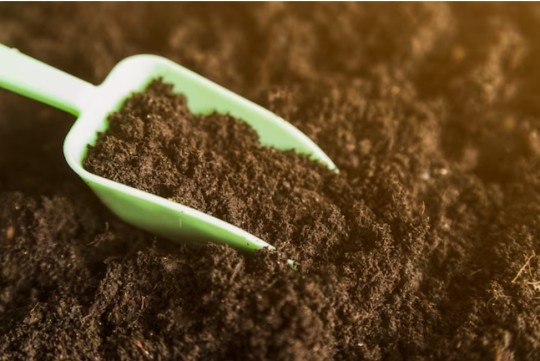
At Gardner Landscape Design, we understand the importance of quality soil delivery for your gardening needs. Our top-notch soil delivery service ensures that you receive the perfect blend of nutrients to help your garden thrive.
Whether you're looking for garden soil delivery near you or need soil delivered in bulk, our team is here to assist. We offer convenient soil bag delivery options, making it easier than ever to get the materials you need right to your doorstep.
Located in Toronto, our soil delivery services are prompt and reliable, so you can focus on creating a beautiful outdoor space without any hassle. Trust Gardner Landscape Design for all your mulch and soil delivery needs - we're here to help make your gardening dreams a reality.
#SoilDelivery#GardenSupplies#LandscapingMaterials#BulkSoil#TopsoilDelivery#GardenSoil#SoilForSale#MulchDelivery#CompostDelivery#OrganicSoil#SoilAmendment#LandscapeSupply#GardeningEssentials#SoilAndMulch#BulkGardenSupplies#HealthySoil#PlantNutrition#GardenPreparation#LandscapingNeeds#GardenProject#OutdoorProjects#GardenRenovation#SoilCare#UrbanGardening#DIYGardening#GreenThumb#LandscapeDesign#HomeGarden#HealthyGarden#GardeningCommunity
1 note
·
View note
Text
Revitalize Your Garden with Seamless Soil Delivery in Kitchener
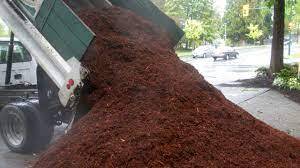
Creating a thriving garden with lush foliage and vibrant flowers requires a solid foundation - quality soil. However, finding the right soil can be challenging, especially for those without a green thumb. Fortunately, seamless soil delivery services in Kitchener can help transform your garden into a flourishing oasis. From selecting the best soil type to preparing your garden for delivery and maintenance tips, this article will help you revitalize your garden with ease and convenience using seamless soil delivery services in Kitchener.
The Importance of High-Quality Soil in Gardening
Healthy soil is the root of a flourishing garden. Whether you're a seasoned gardener or just starting out, it's essential to understand the crucial role high-quality soil plays in plant growth and overall garden health.
Soil as a Foundation for Plants
Just as a solid foundation is critical to the longevity of a building, healthy soil is vital to the growth and survival of plants. Soil acts as a base for plants to anchor their roots and provides important nutrients, air, and water necessary for growth.
The Role of Soil in Plant Growth
Soil is not only a foundation for plants, but it also provides crucial nutrients like nitrogen, phosphorus, and potassium, which are necessary for healthy plant growth. A well-draining soil also regulates moisture, preventing root rot and other diseases.
Benefits of Seamless Soil Delivery in Kitchener
Finding the right soil for your garden can be difficult, time-consuming, and even costly. That's where seamless soil delivery services in Kitchener come in. Here are some of the benefits of using a soil delivery service:
Convenience and Time-Saving
A seamless soil delivery service saves you time and hassle by delivering quality soil directly to your door. This means no more hauling heavy bags of soil from the store or making multiple trips to pick up soil.
Consistent and Quality Soil
Soil delivery services guarantee consistent and quality soil, ensuring that your plants get the nutrients they need to thrive. You can also choose the type of soil that is best suited for your garden.
Reasonable Cost and Competitive Pricing
Soil delivery services offer competitive pricing, making high-quality soil affordable and accessible to everyone. You can also save money by avoiding the cost of transportation and labor associated with picking up soil from the store.
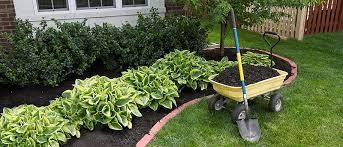
Different Types of Soil and Their Uses in Gardening
Different types of soil have unique properties that make them better suited for different types of plants and gardening techniques.
Clay Soil
Clay soil is rich in nutrients but can become easily compacted, making it difficult for water and air to penetrate. It's best suited for plants that prefer moist soil, like vegetables.
Sandy Soil
Sandy soil is well-draining but lacks nutrients. It's best suited for plants that can tolerate dry conditions, like cacti.
Loamy Soil
Loamy soil is a mix of sand, silt, and clay and is the ideal soil type for most plants. It's well-draining, has excellent moisture retention and nutrient content, making it perfect for a wide range of plants.
Peat Soil
Peat soil is rich in organic matter and is ideal for acid-loving plants like blueberries and rhododendrons.
Silt Soil
Silt soil is rich in nutrients and holds moisture well but can become easily compacted. It's best suited for plants that prefer moist soil, like rice and willow trees.
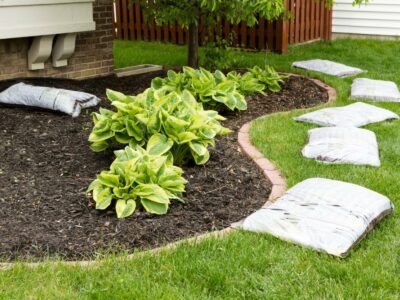
How to Choose the Right Soil for Your Garden
Choosing the right soil for your garden is essential to the health and success of your plants. Here are some factors to consider when selecting soil:
Soil pH Level
Different plants thrive in different soil pH levels. Acidic soil is best suited for acid-loving plants like blueberries, while alkaline soil is ideal for plants like asparagus.
Drainage and Moisture Level
The amount of water your garden receives will determine the type of soil needed. For example, sandy soil is well-draining and is ideal for drought-tolerant plants.
Nutrient Composition
Different types of plants require different nutrient compositions. For example, vegetables require nutrient-rich soil, while succulents thrive in soil with minimal nutrients.
Plant Type and Seedlings
Consider the type of plant you want to grow, whether it's a perennial or an annual, and whether you're planting seeds or seedlings. Some plants, like tomatoes, require specific soil conditions to thrive, while others, like sunflowers, can tolerate a range of soil types.Steps to Prepare Your Garden for Soil Delivery
Clearing Debris and Weeds Before you schedule your soil delivery, it's important to clear out any debris or weeds from your garden bed. This will provide a clean canvas for your garden transformation. Consider using a weed killer or manually pulling out the weeds to ensure they don't come back.
Leveling and Smoothing the Ground Once your garden bed is debris-free, it's time to level out the ground. This will ensure an even distribution of soil during the delivery process. Use a garden rake or hoe to level out any bumps or dips in the ground.
Measuring the Garden Area and Soil Requirements Before ordering your soil, it's important to accurately measure the size of your garden bed. This will help you determine how much soil you need for delivery. Consider the soil depth you desire and your garden's specific needs.
Tips for Maintaining Your Garden's Soil Health
Regular Watering and Drainage System To keep your soil healthy, it's important to maintain a regular watering and drainage system. Ensure your garden bed has proper drainage, and water your plants on a regular basis to maintain moisture levels.
Adding Organic Matter and Nutrients Soil can quickly become depleted of nutrients, especially in areas with frequent gardening. To revitalize your soil, consider adding organic matter such as compost, manure, or leaf mold. These materials will add nutrients and improve the soil's structure.
Avoiding Soil Compaction and Erosion Soil compaction and erosion can harm the health of your garden. Avoid walking on your garden bed as much as possible to prevent soil compaction. Additionally, consider installing retaining walls or planting ground cover to prevent soil erosion.
Frequently Asked Questions About Soil Delivery in Kitchener
Do You Deliver Soil to Residential and Commercial Properties? Yes, soil delivery services typically deliver to both residential and commercial properties.
What Is the Minimum Soil Delivery Quantity? The minimum soil delivery quantity varies by company, but it's often around one cubic yard.
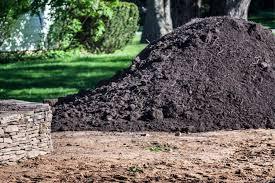
How Soon Can I Expect My Soil Delivery? Delivery times vary by company and demand, but it's best to schedule your delivery a few days in advance to ensure availability.
Transform Your Garden with Seamless Soil Delivery in Kitchener
Maximizing the Benefits of Quality Soil Delivery By utilizing a quality soil delivery service, you can transform your garden in no time. Quality soil will improve your garden's overall health, leading to better plant growth and higher yields.
Customer Reviews and Testimonials Before choosing a soil delivery service, it's worth checking out customer reviews and testimonials. This will give you a sense of the company's reputation and customer satisfaction.Investing in seamless soil delivery in Kitchener can significantly elevate your gardening experience, saving time and ensuring consistent quality soil. With the right soil type and proper maintenance, your garden can become a lush oasis that brings joy and tranquility for years to come. Take advantage of the benefits of seamless soil delivery and make your garden dream a reality today.
Frequently Asked Questions About Soil Delivery in Kitchener Do You Deliver Soil to Residential and Commercial Properties? Yes, we deliver soil to both residential and commercial properties in Kitchener and the surrounding areas.
What Is the Minimum Soil Delivery Quantity? We offer soil delivery in various quantities to suit your needs. The minimum soil delivery quantity is typically one cubic yard for residential properties.
How Soon Can I Expect My Soil Delivery? We understand the importance of timely soil delivery. We strive to deliver your soil as soon as possible, typically within 24-48 hours of placing your order. However, delivery times may vary depending on factors such as weather conditions and order volume. We will keep you informed of any delays or changes in delivery times.
Can You Help Me Choose the Right Soil Type for My Garden? Yes, we can help you select the appropriate soil type for your garden based on factors such as soil pH, drainage, and moisture levels. Contact us to discuss your soil needs and receive expert advice on selecting the right soil type for your garden.
0 notes
Link
1 note
·
View note
Text
Benefits of Mushroom Compost
A mix of straw, peat, gypsum and other organic products makes Mushroom compost. It’s filled with nutrients and its pH of 6.9 is ideal and helps the plants grow. It is an inexpensive way to improve the garden soil. Mushroom compost is the left over growing material from the mushroom growth done on an industrial scale.
It is environmentally friendly, saves water and recycles waste. It is effective for flowering plants, trees, shrubs, vegetable gardens and herbs. There are plenty of benefits of using Mushroom Compost.
Mushroom Compost acts as a nourishing fertilizer. It encourages micro-organisms, bacteria and beneficial fungi into the soil that provides a healthy environment for your plants to grow.
It can be used as desired. Either it can added to the soil before plantation or can be out around the plants, this is known as ‘top dressing.’
It is organic. No worries about having to use a chemical fertilizer that can be harsh on your vegetables. Mushroom compost is the ideal gentle ingredient for the soil.
It retains water. Water is the backbone of healthy plant growth. So, when the soil contains moisture, they grow properly and are fresh.
Mushroom compost is steam sterilized, so it doesn’t invite anymore pests to your land. This is a huge relief for gardeners who are battling enough pests already.
Steam sterilization also prevents any weed making its way to the plants and disturbing their growth.
Mushroom compost is virus-free, and the plants produced have high immunity against viruses.
It also prevents surface compaction. This supports rain absorption along with encouraging worms to aid in healthy soil.
It stops plants from getting waterlogged and drowned out as Mushroom compost can improve chalky, clayey or compacted soil.
Even though it is made of organic matter, it doesn’t bear an unpleasant smell. This is a plus point for gardeners as they can use it without gagging once.
Its price is too good to be true for the quality work it offers. It can even be bought in bulk and then store it safe from rainwater. This way, a supply of nutrient-rich Mushroom compost will always be available.
It helps in keeping the soil cooler in warmer weather. It increases soil resistance to wind and water erosion.
It doesn’t produce any harmful decomposition products.
It plays a vital role in seedling growth and emergence to the surface.
If used carefully, it can be used as a mulch around trees and plants. Mulching plants is proven to be effective. Paul Broad, Sydney Water Managing Director said, "Mulching your garden is equivalent to halving your weekly watering. It means you can have both a lush garden and practice water conservation." – Sydney Water Managing Director, Paul Broad.
Mushroom compost has been classified as a vital ingredient in the recipe for healthy plant growth. Adding it to your soil will provide you blooming fresh plants all year round.
1 note
·
View note
Link
0 notes
Link
1 note
·
View note
Link
#topsoil#topsoildelivered#peatmoss#SphagnumPeatMoss#soildelivery#topsoilsupplier#topsoilforsale#topsoilservices
0 notes
Text
Buying of Topsoil
Topsoil is known as the upper most layer of soil made up of organic matter that is rich in nutrients. It also has carbon and nitrogen present in it along with decomposed worms and beetles etc.
Why buy Topsoil? It has numerous benefits. It can be used for foundation for lawns and hard surfaces. It also prevents erosion and diseases. It decreases farmers’ dependency on chemical fertilizers. It makes the lawn healthy resulting in added drought-resistance. These are just few of the effective advantages Topsoil has. You may decide to buy topsoil if the to-be garden space is a patio or courtyard with no natural soil, or if the existing soil is poor in nutrients and in bad condition.
Product choice Topsoil is generally available in three grades. These are premium grade, general-purpose grade and economy grade. These fulfil your requirements and you can choose according to what suits your garden more.
Premium grade: This is high in fertility. With the strong structure, it can be used in flower beds or creating news beds. It is also used in compost mixes for container grown plants at the nurseries. Its pH is 5.5-7.8. This type of Topsoil is expensive compared to others but worth it.
General-purpose grade: This is used for making new beds or borders, may be as a base for sowing new lawns. It is available in different screen size grades. Finer grades are used as top dressing on lawn while coarser grades are used for laying turf. Its pH is 5.0-8.2.
Economy grade: It is relatively cheaper and used for the areas where volume is required, and quality can be compromised. Its pH is 5.0-8.2. This is usually supplied as dug (screened) topsoil.
Buying Topsoil It is efficient to check the topsoil before you buy it. You should eye thick fibrous roots, high stone content, weeds and contaminants such as glass and brick. You should get details from the seller as to where it is supplied from and you can even request a soil analysis undertaking if the seller has got it done. If he claims any particular qualities of topsoil, make sure to get that in writing. Keep your gardens healthy and don’t compromise on quality.
0 notes
Link
0 notes
Link
0 notes
Link
0 notes
Text
Benefits of Topsoil
Have you ever wondered why the top layer of soil at the riverbank is dark? Why does it look different? Well, that’s because the upper 5 to 10 inches of soil is the special Topsoil.
As it is the top-most layer, “O Horizon or A Horizon” are the names given to it in the soil classification system.
The organic matter is mostly found here because the top layer is where the plant roots, stems and leaves decompose. The main two parameters on which plants thrive are carbon and nitrogen, both present in it. Other than those, there are creatures like worms and beetles living in it which when decompose, enrich the soil.
The optimum pH for plants and crops is between 6.0 to 7.0. Good quality topsoil’s pH is between 5.5 to 7.5. This is mildly acidic to slightly alkaline. This makes sure that plants are able to extract the nutrients in the ground.
Its quality depends upon the geographic region it is in. Fertile topsoil also has potassium, phosphorus and iron in it.
The formation of this important top-most layer of soil is a slow process. The organic matter from decaying animals and plants combined with the weathering of rocks results in topsoil. It can take around a 100 years for one inch of topsoil. It’s very slow but worth it.
Topsoil is proven to be the most valuable and fertile part of soil. There are a lot of benefits attached to it.
As it is the upper layer of soil, that’s where the plants grow. It retains water and has nutrients, both are backbones for healthy plant growth. A rich layer of topsoil guarantees healthy gardens.
Soil around a new house is expected to be sandy or clayey. If a thick layer of topsoil is added, it can promote healthy plant growth and result in a beautiful lawn and garden in no time.
A low in nutrients topsoil can be used to play the supporting role in projects like being the base for patios or changing the grade of a property.
Erosion is also prevented by compacted topsoil.
It also provides foundation for lawns and hard surfaces.
Its use allows the farmers to be less independent on chemical fertilizers.
It is also the reason for less soil and plant diseases occurring.
It makes your lawn healthy resulting in added drought-resistance.
The ideal time to put it in your garden is spring. It will give your plants plenty of time to grow and nourish before the harsh cold weather takes over. While choosing topsoil, you should look for the darker soil, as the blacker the soil, the richer it is in nutrients. Hence its earthy smell is the strongest as well.
If you were aware of how beneficial topsoil is, or if you just found out today, continue gardening. You can have a beautiful healthy and low maintenance garden, lawn or farm if you utilize this rich soil.
0 notes
Text
Uses of Peat moss
The dark brown fibrous material you may have seen in your garden or a nursery, is Peat moss. It is a versatile material used in gardens. It consists of decomposed organic matter including sphagnum moss. It is the solution to make your garden more productive than before.
Peat moss is usually found in bogs like swampy and waterlogged lands in the northern hemisphere. It takes a long time to form.
It retains water and thus is a helpful agent for plant growth. It is clean, sterile, acidic and non-compact.
Peat moss has important characteristics that make it incredibly useful. Some of its uses are listed below.
Peat moss is an ingredient of potting soil. Potting soil is a mixture of organic matter like peat moss, coconut coir, compost, per lite and sometimes even sand. It helps in water retention, aeration and drainage.
It can be used in amending soil. If peat moss is added to dry soil, it increases its absorption. It enhances the drainage capability and reduces the compaction in clay soil. If a soil is alkaline, it can be reduced to neutral by the addition of peat moss.
It is used to germinate seeds. Damping-off is reduced by the sterile nature of peat moss.
It is also popular in hydroponic because its sterile, high cation exchange capacity, water retention and draining ability.
It comes in handy when plants are to be transplanted. When a tree has to be moved to another location, it cannot be ensured that the soil already present there is ideal for plant growth. So, peat moss will aid healthy plant growth when you re-plant a tree.
A compost pile can be build so the plants can be fertilized. Peat decomposes more slowly than other organic matter. It guarantees nutrient content in the soil for a long time.
Adding peat moss can overcome the strong odor in your compost pile.
It improves soil texture by breaking down.
The qualities of peat moss make it very suitable for vegetable gardens since those have extremes of wet and dry. So, peat moss counters the negative impact of it on the growth and production of vegetables.
Dried peat moss can be used for surgical dressings. It is also used in diapers and bedding.
Shippers who transport live aquatic animals use it as a seedbed cover.
Peat moss’s strong qualities have made it a significant part of the horticulture industry over the years. It’s ideal to apply a least 1 to 3 inches which should be worked to around 6 inches deep. It is proven to increase soil moisture, acidity and porosity.
0 notes
Text
What is Mushroom compost?
Mushroom compost is the left over compost waste by the mushroom production industry. It is an organic fertilizer. It is a mixture of hay, straw, corn cobs, hulls and animal manure. Some types also include gypsum in it.
Production of mushroom compost is a multi-step process. It is initiated by soaking bails of straw in water, which is then run through a chipper that refines it. The manure and gypsum are blended together before straw is added. Hot compost piles are used to place this mixture in them. They are then turned and watered regularly. During the initial stages, any remaining weed seeds are eradicated, and the piles are turned into long rows.
Before the mushroom growth, the compost is steam pasteurized so that any bacteria or weed seeds that might have found their way in during the composting phases can be killed. The pasteurization results in sterilization of this manure and gypsum blend and creates a clean material as an output.
Mushroom composting takes about a month in average to process. It is monitored by the mushroom-growers to make sure that the temperatures maintained are optimum. It is not only a good source of nitrogen, phosphorus and potassium, but also has a wide range of other important elements in it.
The fungal inoculation is improved after the mushrooms are taken out of the mushroom compost. This causes the compost to break-down and form a more soil-like appearance.
Mushroom compost is used as a soil amendment. It reduces surface crusting and compaction. Along with enhancing microbial activity, it also promotes drainage. It prevents soil or water erosion. It promotes faster turf development and increased rooting.
When used as a mulch, it improves the soil around plants along with giving your plant base a better appearance. It also protects the roots of plants in winters.
Mushroom compost is proven to manage and prevent plant diseases resulting in better and healthier plants.
It is a helpful tool in improving plant growth and providing efficient moisture retention. If you were looking for an organic fertilizer, mushroom compost is your friend.
0 notes